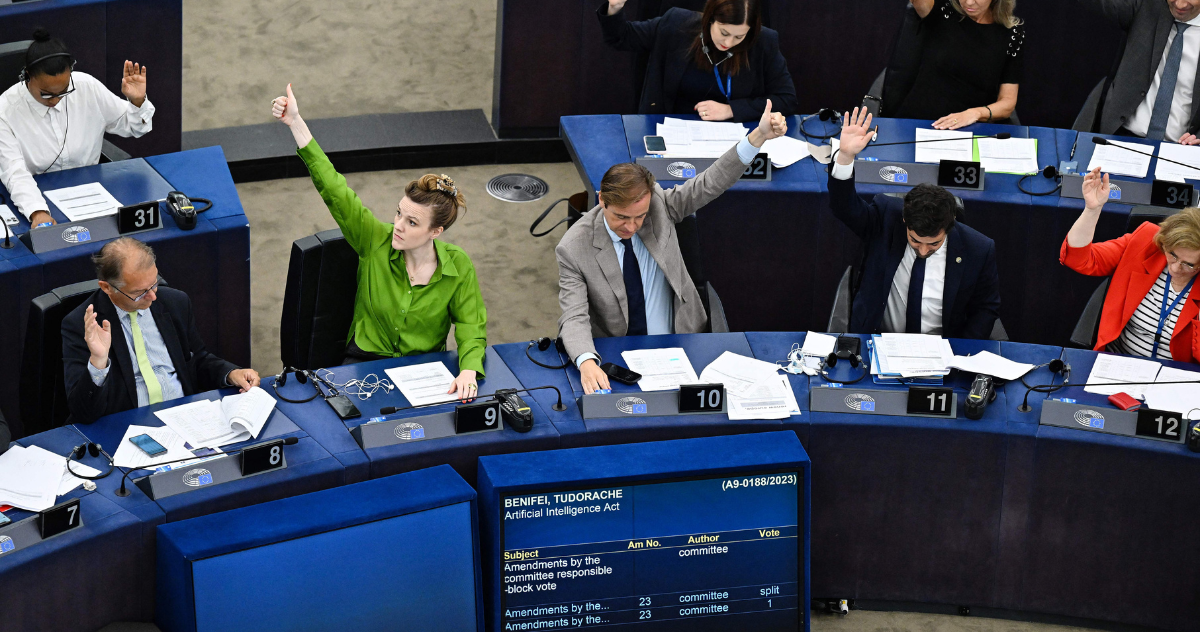London (Parliament Politics Maganize) – Social justice activists and lawmakers disapproved of Justice Minister Helen McEntee’s plan to broaden contentious laws allowing facial recognition technology (FRT). The Minister of Justice, Helen McEntee, has instructed her department’s legal staff to incorporate violent disorder and riot offenses into the new laws.
The government will be able to adopt the draft FRT law in a matter of weeks, but before it can be finalized, pre-legislative vetting must be completed. This implies that the law may not go into effect until at least next year. In recent months, the Green Party and Fine Gael have been at odds about establishing FRT through standalone legislation. The decision was reached to move forward independently with the gardaí bodycam rollout.
Government action,
Nearly all frontline gardaí will be equipped with new body-worn cameras, which the gardaí stated they will be tendering for in September. Although face recognition software is not built into the cameras, it may be added later using a particular computer application.
According to Irish government sources, the FRT law would enable gardaí to employ technology in their investigations into heinous crimes, including child abuse, rape, and murder. Sources claim McEntee is responding to the November incident in Dublin by ordering the department’s legal staff to incorporate riot and violent disorder into the new laws. It will not, however, be operational for its utilization in the riot inquiry.
Currently, in murder cases, gardaí have to go through hundreds of hours of video to follow the whereabouts of suspects and their collaborators. In order to collect the video, gardaí make a list of all the streets and roads where they think CCTV cameras are located about a crime they are looking into. After that, they gathered the video and analyzed it.
The garda investigators, frequently former police officers reassigned to different positions, study CCTV footage in a room and note when and where they observe possible suspects. Depending on the offense, the procedure might sometimes take months. Following that procedure, gardaí will also share other gardaí stills from the video in exchange for their “nominations,” or the identities of offenders they believe to be who they are. In the past, these kinds of identifications have, at most, been effective in obtaining prosecutions or, at the very least, contributed to the evidence.
After the identification, the film will still need to be inspected, but the scope of that inspection will be reduced. Before any suspect can be entered into the tape, Gardaí will also need to personally identify each one. It is acknowledged that gardaí will need to testify in court to demonstrate their control over the system and their ability to identify the suspect. The administration has tried to convince people who are against the reforms that strict measures will be implemented to stop misuse. Previously, the equipment could only be used by Gardaí, and now a judge from the High Court will oversee its usage. This similar approach restricts the use of surveillance devices in addition to having a senior judge assess the apparatus.
Read More: Busting Menstrual Misinformation: Latest Study Reveals Alarming Trends
The Irish Council Declares
The Irish Council for Civil Liberties (ICCL), which has previously said that it is “strongly opposed” to the technology being used by law enforcement, claims that An Garda Síochána has a “poor record on data protection.”The ICCL has previously recommended that facial recognition technology used by law enforcement be outlawed due to its “extreme risk to rights.”Several academics have also criticized it, claiming that it is open to abuse by the police during an event organized by ICCL.
At an Oireachtas committee hearing, Garda Commissioner Drew Harris made an effort to alleviate some of the concerns over FRT.”By this, I mean all of the issues raised by facial recognition software.


